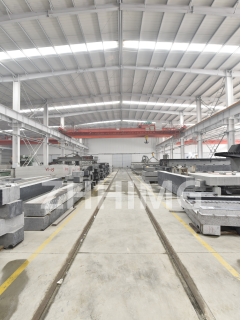Granite vs. Cast Iron and Mineral Casting Beds: Understanding Thermal Expansion Coefficients and Their Impact on Machine Tool Accuracy
When it comes to the construction of machine tool beds, materials such as granite, cast iron, and mineral casting are commonly used due to their unique properties. One crucial factor to consider in the selection of these materials is their thermal expansion coefficient, especially in environments with varying temperatures. The difference in thermal expansion coefficients between cast iron and mineral casting beds can significantly affect the accuracy maintenance of machine tools in different temperature environments.
Cast iron, a traditional material used in machine tool construction, has a relatively high thermal expansion coefficient. This means that as temperatures fluctuate, cast iron beds are more prone to expansion and contraction, potentially leading to dimensional changes in the machine tool. On the other hand, mineral casting, often composed of materials like epoxy resin and granite aggregates, has a lower thermal expansion coefficient compared to cast iron. This characteristic allows mineral casting beds to exhibit minimal dimensional changes in response to temperature variations.
The impact of these differences becomes particularly significant in environments where temperature control is challenging. In high-temperature environments, the higher thermal expansion coefficient of cast iron can lead to dimensional inaccuracies in the machine tool, affecting its precision and performance. Conversely, mineral casting beds, with their lower thermal expansion coefficient, are better equipped to maintain accuracy in such conditions.
In contrast, in low-temperature environments, the lower thermal expansion coefficient of mineral casting may result in a stiffer structure compared to cast iron, potentially affecting the machine tool's dynamic response and vibration damping characteristics. Understanding these differences is crucial for manufacturers and users to make informed decisions based on the specific temperature conditions in which the machine tool will operate.
In conclusion, the thermal expansion coefficient plays a vital role in the selection of materials for machine tool beds. While cast iron has been a traditional choice, the lower thermal expansion coefficient of mineral casting, often incorporating granite, offers advantages in maintaining accuracy in varying temperature environments. By considering these factors, manufacturers and users can optimize the performance and longevity of machine tools in diverse operating conditions.
Post time: Sep-06-2024

